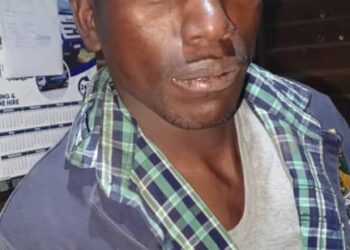Remains of 21 people were exhumed from a housing development project site in Bulawayo’s Killarney suburb before they were reburied at the city’s Luveve cemetery.
This was revealed in the latest Bulawayo City Council minutes on cemeteries and burial services.
However, mystery remains on the source of the human remains as the minutes were silent on the matter.
“The human remains were exhumed by the department of National Museums and Monument of Zimbabwe,” read the minutes,” the report only said.
Human remains have also been discovered in some parts of Matabeleland that bore the brunt of the Gukurahundi massacres in the 1980’s.
In 2011, pupils playing football at the grounds of St Paul Secondary School stumbled on human bones sticking out of the ground.
The remains were re-buried without forensic investigations.
Villagers’ still stumble on human remains to date, particularly during the rainy season.
In 2018, villagers discovered human remains scattered along the banks of Bhode River near Kezi business centre, and several skeletons were also dug out at the area on the instructions of Chief Nyangazonke.
However, the villagers were ordered to re-bury the remains without any forensic investigation to establish their identity and cause of death.
The remains were re-buried at the Kezi Rural Hospital graveyard.
According to the council minutes, Luveve Cemetery received bodies from outside the city among them from Victoria Falls, Umguza, Nkayi, Gwanda, Harare, Gutu and Insiza all which recorded 1 each.
On grave digging, the council said the programme was being hampered by the constant breakdown of its equipment.
“It’s the hydraulic system, which was being attended to,” the minutes read.
“A private grave digger from Aggregate Company was failing to accomplish its task of 100 graves since it started digging on December 2, 2023.
“The machine was characterised by constant breakdowns.”
On cremations, the council noted that residents were still not comfortable with having the remains of their relatives cremated.
Only three bodies were recorded during the period under review.
The local authority has been trying to encourage residents to embrace cremations to save the available burial space, but there have been few takers due to mainly religious and traditional beliefs.
Council says the city is running out of burial space. Council once came up with a burial strategy comprising of three approaches to save space; digging up deep graves to allow for two or three burials, stopping the reservation of graves and asking owners of unused graves to sell them back to the council, and the reduction of cremation tariffs to less than half the price of a traditional burial.
Council has also suggested that people be buried at their rural homes.
The local authority once suggested forced cremations for children under the age of 12 years, but the idea was shot down after residents resisted it.
Source Southern eye










